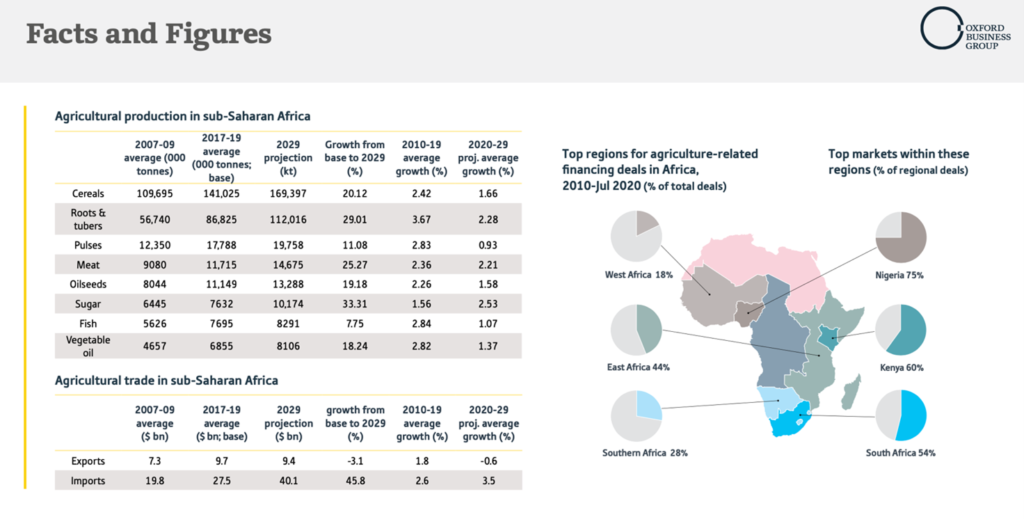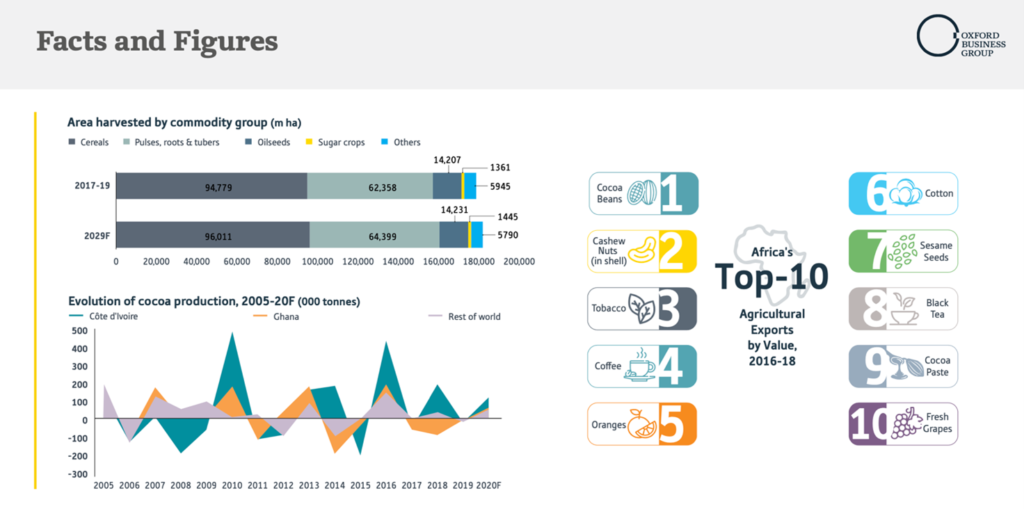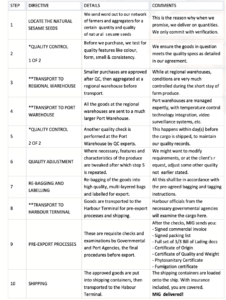Services and Products
Sustainability Development Models
The Integration of The African Continent Through Agriculture
Maxwell Investments Group (MIG)
Maxwell Investments Group (MIG), consisting of a group of investment bankers, economists, social entrepreneurs, statisticians, and tens of thousands of get-your-hands-dirty local farmers, aggregators and soft-commodity traders are honing their expertise and building bespoke Sustainability Development Models toward the ultimate benefit of low-income and impoverished regions and communities in Africa that predominantly consist of what we classify as Persons of Concern (POCs). We briefly define POCs to be persons living below and around minimum wage, and other persons growing poorer and poorer by default, year in, year out.
These Sustainability Development Models are designed with an astute understanding of the diversity of the African terrain, and have sustainability at their core! With the rather unique melange of commerce, sustainable development and social entrepreneurship, Maxwell Investments Group garners the well-being of Africans through economic inclusion, communal development, and the creation of micro-economies.
The goals of the creation of micro-economies are the following:
- Improving local household financial well-being
- Connecting local and rural low-income farmers to city-based and international markets
- Ensuring health equity through financial stability, for health after all is wealth
- Ensuring financial stability through increasing household and communal purchasing power
- Ensuring household and communal purchasing power through local agricultural development programs that promote communal lending
- Ensuring communal and household wealth-insurance through the awareness and access to subsidised life and health insurance (MIG is the duly-appointed B2B Agent of MTN aYo Microinsurance for this exact purpose
- Teaching modern and preservative agricultural practices that increase food production
- Ensuring communal development through promoting diverse agricultural cooperatives
- Teaching financial literacy for the purposes of financial inclusion and development;
- Developing human capacity through bespoke and community centric (and relevant) forums and trainings
- Ensuring efficacy in trainings, education, and communal development through timely research
- Ensuring research reaches impoverished communities and Persons of Concern through our in-house, data-light, universal USSD Code system
The primary goal of the MIG Agricultural Sustainability Development Model is Aggrandizement
The Goal is to garner the full utility of the African agricultural sector players, increase their agricultural know-how, connect them (and their products) to city-based and international markets and help drive international commerce on a regional scale, while also fostering the creation of micro-economies: directly and actively contributing to the Triple Bottom Line.
The members of Maxwell Investments Group are very well tentacled across several industries and key and niche agricultural domains and markets across Africa. MIG are also the Official Business Advisors to the largest trade union in Ghana, the General Agricultural Workers Union (GAWU) under the nation’s Trade Union Congress.
Our Africa-wide presence and influence with a plethora of international partners, governments and other reputable companies and organisations afford us the ability, wherewithal and aptness to navigate and launch pragmatic projects in record time. We truly understand the business of doing business in Africa.
This understanding is further buttressed and amplified by the force of organisations we are members, partners, and liaisons of; organisations such as the World Economic Forum, the General Agricultural Workers Union (GAWU) of Ghana, the Ghana Economic Forum (GEF), friends with the East Africa Community, et cetera.
The centrality of agriculture in Africa
By an exceedingly large margin, agriculture is the most important economic endeavour in Africa! Agriculture creates and employs approximately two-thirds of Africa’s labour force. In addition to this, at the country level, agriculture is responsible for about 30 to 60% of GDP (on the continent), and circa 30% of export value.
The true value of agriculture in Africa and agriculture from Africa remains drastically untapped and under-explored. The continent is home to more than 60% of the entire world’s uncultivated and arable land – this means Africa has the potential to not only provide more than enough food for its population of 1.3 billion citizens but also for the rest of the world.
The fact that this is yet to happen is an unarguably lucid and stark announcement that not nearly enough has been done concerning meaningful connections with the markets of the West, the East and the Middle East. The right ventures would potentially tap into an immeasurable funnel of commerce, food (and food security), and cross-continental economic integration and inclusion!
It is reported that Africa could be two or even three times more productive should it intensify its agricultural outputs. The exhibits below (Exhibit 01 and 02) depict agricultural production in sub-Saharan Africa, and the area harvested by commodity groups, respectively:
Very rapidly, Earth is growing evermore conscious about the food they consume, with regards to sourcing, production, organics, preservation, et cetera.
“Sub-Saharan Africa will need eight times more fertiliser, six times more improved seed, at least $8 Billion of investment in basic storage (not including cold-chain investments for horticulture or animal products), and as much as $65 billion in irrigation to fulfil its agricultural promise”
- McKinsey
These figures may seem fairly substantial, but in the long term, it is a relatively small series of investments with the promise of extremely large ROIs, market capture through growth strategies, subsidised export of value-added, standardised soft commodities (to the West, Asia, and the Middle East), and a long-lasting infrastructure model that will practically last as long as the human race shall consume food and nutrition.
Investing in African Agriculture: the Social and Developmental Footprint
Investments in African agriculture would concurrently attract a bi-effect in catalysing social development, food security, creation of new farmers through productive economic inclusion, and ultimately combating rural poverty.
Other advanced efforts would be effectively assisting impoverished communities and rural regions to create micro-economies, for instance, the introduction and sustainability of all-year crop farming (such as is done in countries like China) which would greatly increase the profitability of agricultural produce from the continent.
Through the adoption and implementation of Collective Community Projects (CCPs), we create avenues for modern educational practices, access to fairer wages, increased purchasing powers, and the proliferation of innovations that help preserve crops, and track climate and weather patterns.
All these innovations in agriculture will greatly help in reducing the levels of energy and natural (or other) resources used in the production, preservation and transportation of agricultural produce, thereby reducing the overall carbon footprint and creating a more sustainable, equitable, and planet-friendly culture of farming in Africa and for the world market.
Large scale agricultural endeavours in Africa will go on to contribute to the overall well-being of the world by reducing the CO2 burden on/from Asia, as this is the region that presently feeds half the world population with only a quarter of the planet’s arable land.
ESG Investing in Agriculture
Delving into the space of agricultural investments in Africa conversely opens up an ocean of support and funding from ESG (Environmental, Social and Governance) centric funds established purposefully for this sort of impact! Africa greatly lags in ESG investing in agriculture; this leaves open opportunities for international companies and organisations to arrive first at the shores of the continent’s blue ocean agricultural market.
Excerpted from Why Africa in an article on ESG investing in African agriculture (published on July the 15th, 2022), the following was corroborated on the importance, viability, and potential profitably and development of international lenders/investors & ESG applications:

“The agricultural sector in Africa remains significantly under-invested, but more support from international lenders and investors will come with stringent environmental, social and governance (ESG) requirements.
Investment in agriculture in regions like East Africa is already growing. Here, economies are primarily agriculture-based, with the sector contributing an average of two-thirds of GDP and providing jobs to the majority of citizens.
As one indicator, investments in agricultural technology (AgTech) in this region – focused on Kenya, Uganda, Tanzania and Rwanda – rose from almost zero in 2001 to USD425-million between 2015 and 2017 [ONLY].
With some 60% of the world’s uncultivated land, Africa generates only 10% of global agricultural produce – signalling the significant potential of agriculture to lift the continent’s economies.
Taking advantage of its comparative advantage, however, will need a firm commitment to sustainability, according to SRK Consulting partner and principal environmental consultant Darryll Kilian.
“While there is scope for agriculture to help drive broader economic development, land is a sensitive issue that needs appropriate policies and careful negotiation of ESG risks,” said Kilian.
Large-scale agriculture demands considerable land-take, posing a number of risks; for instance, it can significantly impact biodiversity, water resources, livelihoods and human rights, if not carefully planned, assessed and managed.
Notwithstanding these human-environment interactions, it is imperative that project proponents understand the relationship between subsistence and commercial farming”.
Quality Controls, Products and Sourcing
Our Health and Safety Commitment
Health, Safety, and Environmental awareness are an integral part of our core business values. Wherever we operate, we conduct our business with sensitivity and care for both the local and global environment to systematically drive sustainable growth. We do our utmost best to reduce injuries, occupational illnesses, unsafe practices and incidents of environmental harm within our activities, which remains one of MIG’s central commitments.
Our health and safety policy manuals are reviewed regularly to keep abreast of current human safety requirements, environmental rules and regulations and best industry practices.
Quality Assurance at Source Point
To ensure our cherished clients get the best of products purchased from us, we have a network of well-trained and competent quality checkers who test and confirm for quality at source before we move the goods to our regional warehouses, where they are stored in very good conditions. We operate a network of warehouses nationwide and some in nearby countries. We choose locations near farming communities and trading areas. This is where we initially aggregate our exports, your imports.
Our access to tens of thousands of local agricultural farmers creates unique access to goods and produce from the sub-region. Meeting export targets is not a problem as we have the numbers. Our quality control team are experienced officers who have been in the industry for many years and can guide our purchasing clerks to procuring nothing less than the best in terms of quality and value.
In addition, we use the right and appropriate bagging methods to ensure that the products are not exposed to environmental elements which could impact their quality.
Transport Process
Our logistics desk manages the logistics components of our commodities trading endeavours. We have a network of heavy-cargo transport vehicles to readily transport your cargo from the farms to our regional warehouses across the country, or from the regional warehouses to our Port Warehouses where we prepare your products for export.
We engage the services of top-tier warehouse & stock collateral management firms that ensure that the premium value of your cargo is maintained through care and quality control. Our drivers receive regular training and appraisals. Our vehicle insurance packages cover both the drivers and your cargo in unfortunate events like road accidents. We are also mindful and aware of the relevance of efficient packaging and warehouse stocking protocols that take into consideration ventilation and humidity concerns, amongst others.
Final Warehousing and Re-Bagging
Near the major Ports and Harbours, we have a number of our Port Warehouses where we store the goods from our regional warehouses. Before export, we reconfirm quality by re-conducting our quality checks again to confirm the state of your import. If inconsistencies are discovered, it is corrected before it leaves our Port Warehouses to the harbours.
When we are done with the second quality control, we then re-bag the goods into high quality, multi-layered bags (or other preferable forms of storage) for export processes to commence. Our re-bagging also takes into consideration the acceptable labelling and markings you would prefer on the bag.
Export Process
We take particular interest in the processes that our exported cargo goes through with the local government agencies. We always ensure that the right authorities are giving the requisite documentation to facilitate the necessary export processes.
Our close relationship with the major shipping lines almost automates the actual loading of your cargo into export containers and onto the ships. We advise our clients to opt for shipping insurance as well. I am sure you dislike risk just as much as we do.
From there, it’s smooth sailing to your shores!
Sample Quality Process Outline: Natural Sesame Seeds
Integration of the African continent
Our economic integration ideologies, designs, and approaches stem from nearly 2 decades of working with, in, and for planet Earth – operating both as astute investors and international and social development experts.
Through merging and integrating learnings, roadmaps, and frameworks from African governments, the United Nations Sustainable Development Goals (SDGs), and the African Union’s Agenda 2063, MIG forged its list of 10 Goals which strive to take a more direct, equitable, and practical approach that the flexibility of our relative independence affords us. We are very agile, non-partisan, development-oriented and ready to have deep conversations where others otherwise might not be able to.
Because of this, we are much better placed and well able to navigate otherwise complex terrains of business and commerce in Africa and the commonplace retrogressive nature of launching community-centric economic development and integration projects.
Our plans for development and the activation of new levels of agricultural investing are chiefly tied to our MIG Goals.
Your goal, Our goal!





